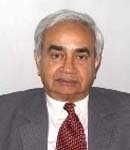National Security Council - BJP Style
27 Nov, 1998 · 161
P. R. Chari says that the BJP government's haste in establishing the NSC is largely designed to assuage global concerns over the lack of any institutional process to make threat assessments and concludes that it promises to be a farce
After ignoring it for several months the BJP government acted hastily to implement its Task Force Report on establishing a National Security Council (NSC). This was promised in the BJP’s election manifesto and National Agenda of Governance; indeed the NSC is to undertake the “first ever” Strategic Defence Review (SDR). What accounts for the delay in implementing the Task Force Report, and the present haste in establishing an emasculated NSC? Clearly its formation was not a priority issue for the government after it succeeded in its deception plan and was able to conduct its nuclear tests secretly in May. The present haste is largely designed to assuage global concerns with the lack of any institutional process to make threat assessments in
India
or refine nuclear doctrine; and partly to the power struggle within the BJP. A close watcher of BJP affairs has noted this in the following terms:
India
Today (November 30, 1998 )
New Delhi
strategic community. Ideally, it should consist of persons belonging to different persuasions, including those outside the capital, to reflect the diversity of opinion within
India
. In practice, however, the Board might only comprise the high priests of the bomb lobby, BJP think tankers, and remain Delhi-centric. Even worse, it might include the entire host of
New Delhi
strategists, as happened with a similar body established during the first Janata interregnum when the advisory body was enlarged till it included some 150 members.
“Too much power has been concentrated in the hands of Principal Secretary Brajesh Mishra and Planning Commission Deputy Chairman Jaswant Singh, both of whom are also involved in a turf war. Jaswant, for example, was appointed to head the Northeastern Council with much fanfare. To date the body hasn't met. He was also supposed to coordinate with the allies but couldn't because he was preoccupied with international diplomacy. On his part, Mishra wants to be foreign minister, foreign secretary, special envoy, national security adviser and principal secretary at the same time”. Cf. Swapan Dasgupta in
Both are clearly involved in too many unable-to-cope-with activities, but also in a power-and-influence struggle that divides the moderate (Jaswant Singh-Vajpayee) and hard-line (Mishra-Advani) camps in the BJP. Hence, both had to be appointed to key positions in the JIC—Jaswant Singh to the Council and Brajesh Mishra as the National Security Adviser (NSA).
The NSA’s post is crucial to the success of the NSC by linking the political leadership and bureaucracy with outside expertise. It would be impossible for any Principal Secretary (PS) to the Prime Minister to undertake the NSA’s functions with any seriousness, since he needs to perform many other formal responsibilities, apart from dealing with major issues requiring the Prime Minister's attention and, most time-consuming, bureaucratic trivia like appointments, postings and transfers requested by MPs and Ministers.
But there are two other reasons why coalescing the posts of PS to PM and NSA’s will be disastrous in the larger administrative context. Firstly, this will become a precedent for the future and ensure the NSC’s steady debilitation until that body passes into oblivion. Secondly, this arrangement will tilt the power balance between the Cabinet Secretary and PS to PM further in the latter's favor, leading to further consolidation of the prevalent Prime Ministerial system of governance to the detriment of the entire administration.
It hardly needs reiteration that hardly any expertise in security matters resides in either the projected NSC or the Strategic Policy Group. Consequently, the Joint Intelligence Committee (JIC), which is to service the NSC, becomes critical. Under-Secretaries from the Ministries represented often attend its meetings. A Joint Secretary in that organization often chairs its meetings. Consequently, even its members do not take that body seriously.
A new Chairman has been announced to head the JIC from the Foreign Service. And thereby hangs a bureaucratic tale of intrigue. The JIC functioned under the Chiefs of Staff Committee before the Sino-Indian border conflict (1962), and was headed by a Joint Secretary in the MEA. After 1962, it was placed within the Cabinet Secretariat, and headed by an Additional Secretary from the Indian Administrative Service (IAS). Later, a Secretary-level officer from the intelligence services and Indian Police Service (IPS) was heading the JIC. The MEA and Foreign Service have now succeeded in re-capturing that “lost post”.
A National Security Advisory Board is envisaged to harness the talent in security affairs outside the government. How it will be constituted is of more than ordinary interest to the vast
The Janata NSC ended in a farce. The BJP NSC is well on the way to becoming one. Meanwhile, basic security issues will continue to be addressed in an ad hoc fashion by the bureaucracy, bereft of any over-arching concept or policy.


